In the long-running debate in higher education over whether ethics can be taught in college, DePauw University has, since its founding, come down firmly on the side of “yes.”
The belief was alive in 1837, when the Methodist Church founded the school that would become DePauw and deemed it “forever to be conducted on the most liberal principles, accessible to all religious denominations and designed for the benefit of our citizens in general.”
Then, in 2007, DePauw affirmed the conviction when it opened the Janet Prindle Institute for Ethics, joining a small contingent of institutions of higher learning that put ethics front and center.
In those intervening 170 years and the 11 since, ethics have been debated in all manner of disciplines and classes have been shot through with conversations about ethical considerations.
“As an institution of higher education, we are preparing our students to make meaningful contributions to a diverse democracy and a global society,” says Anne Harris, vice president for academic affairs. “In that work, ethics, especially as they guide interpersonal interactions and how people value each other, are crucial. Liberal arts graduates are critical thinkers who can discern and articulate their convictions, largely because these have been explored and tested in a living and learning environment.”
To Andrew Cullison, the Phyllis W. Nicholas endowed director of Prindle, “ethics ought to be one of the fundamental things that a liberal arts college is focused on.”
Graduates, says Cullison, a 2001 DePauw graduate, should be “competent to weigh values, to think about competing interests, to think about the cases for both sides of a critical issue or a public policy issue.”
Ted Bitner, the Lee G. Hall distinguished visiting professor of psychology and neuroscience, agrees. “We’re educating people here not to get a degree that gets them a certain job,” says Bitner, who also is scientific research coordinator at Prindle, “but we’re educating them in terms of their character, in terms of morality – those kinds of things that, when they go into business, they go into education, they go into whatever they go into, they know how to think through these situations that are always confronting each and every one of us.”
That doesn’t mean that professors attempt to “give them the true way to live,” says associate philosophy professor Jeffrey Dunn. “It’s critically important for DePauw to encourage people to reflect on their own ethical principles and to give them the skills to be able to do it in a useful way so they’re able to competently think through these ethical questions that are going to arise for them.”
We’re educating people here not to get a degree that gets them a certain job, but we’re educating them in terms of their character, in terms of morality – those kinds of things that, when go into whatever they go into, they know how to think through these situations that are always confronting each and every one of us.– TED BITNER, Lee G. Hall distinguished visiting professor of psychology and neuroscience
No one keeps tabs on how and how often ethics are taught in higher education, but preliminary data suggest that ethics training is pervasive at DePauw. Shortly after the Association for Practical and Professional Ethics chose to locate its national headquarters at Prindle, DePauw was invited in March 2017 to join the National Ethics Project, which was launched to gather such data. Other partners in the project are Harvard and Stanford universities, the University of South Florida and The Citadel. Prindle recently was identified as the project’s clearinghouse for data.
Course catalogs from DePauw and Harvard were used as guinea pigs to test the tool the project will use to capture data. “The research director at Harvard said . . . ‘DePauw’s came out at about 90 percent, so I think there’s a problem with the tool,’” Cullison recalls. “I said, ‘or maybe there’s not a problem with the tool.’ We really do have more ethics-y classes because of the way our professors have been structuring their classes.”
Harris says that ethical training happens outside the classroom too – “in the residence hall, in campus events, in controversies and in social media – some of it planned; some of it unpredictable. We must strive, as an institution and as a community, to provide places and platforms where discussion and dialogue about complex ethical situations can take place. The Prindle Institute provides such a place and platform, but we can also think about diffusing those important conversations throughout campus.”
To measure whether DePauw’s efforts are effective, students will take a test each year to measure changes over time in their capacity for moral reasoning, Cullison says. A preliminary test of 100 DePauw students showed they scored above the national average for all four grades.
“I think you could make a case that ethical discussions should be at the root of a liberal arts education, that there are foundation principles for humanity that we should be trying to identify and discuss,” says Jeffrey McCall, professor of communication and theatre. “That’s not to say that everybody’s going to look at them in the same way. People are welcome to have disagreements about what is proper in any given context but I think to ignore the discussion is a disservice to students.”
A lot is at stake. For example, “very soon we will be able to edit the genomes of people who perhaps have a disease . . . If you understand the gene, and now we have the power to change it, that’s where the Pandora’s box of Pandora’s boxes is,” says Dan Gurnon, associate professor of chemistry and biochemistry and program director for the Science Research Fellows.
“That is why training in ethics is so critical. Places like Prindle are so important for students and a liberal arts education is so important for students, for anybody who is going into science. They’re going to have to think about these issues. . . We’re doing a good job, I think, of exposing our students to problems of immediate interest and importance.”
DePauw Magazine
Summer 2018
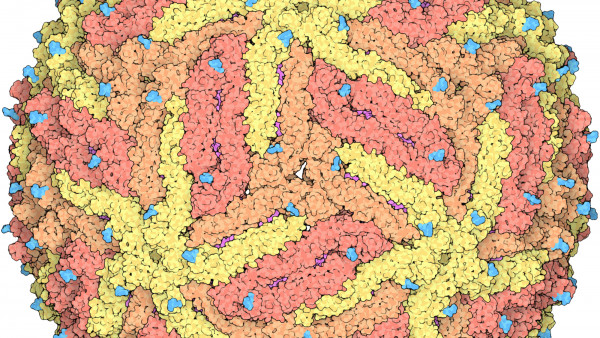 Art and science and serendipity
Art and science and serendipity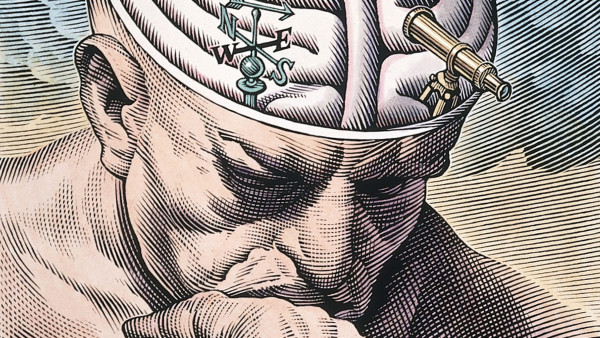 Encouraging an ethical ethos
Encouraging an ethical ethos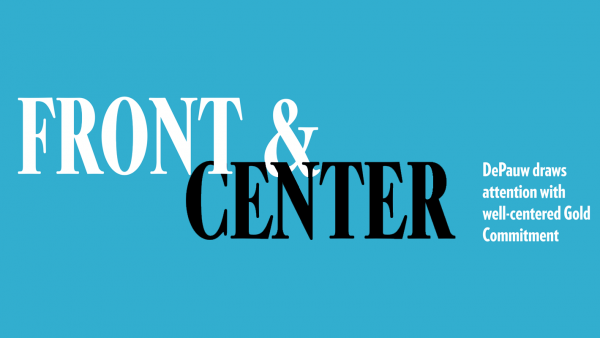 Front & center
Front & center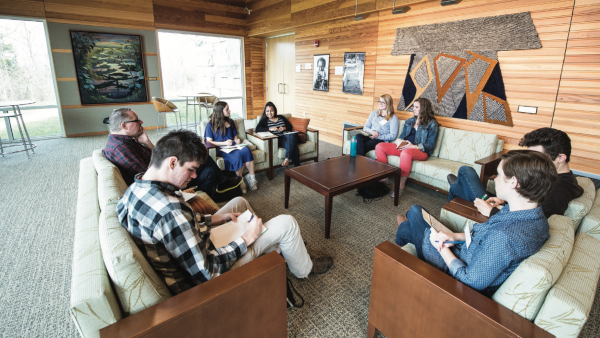 Prindle’s Purpose
Prindle’s Purpose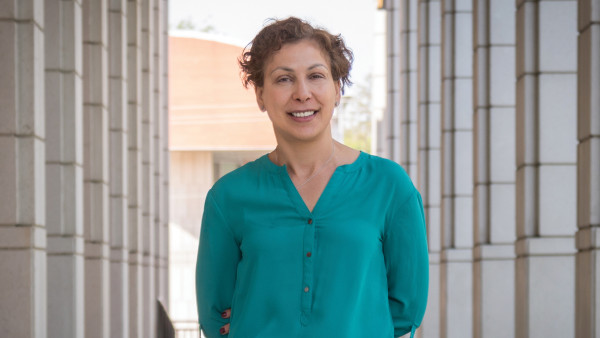 Ethics in disciplines
Ethics in disciplines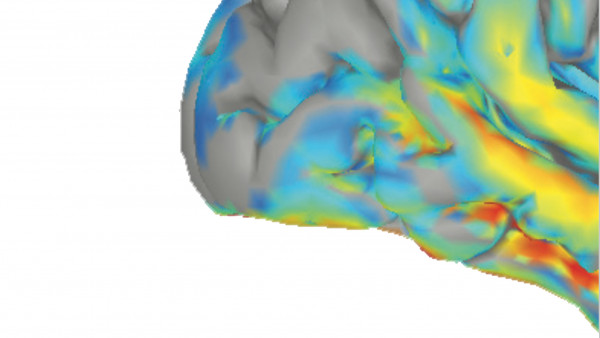 Your brain on ethics
Your brain on ethics
DePauw Stories
A GATHERING PLACE FOR STORYTELLING ABOUT DEPAUW UNIVERSITY
Browse other stories
-
Athletics
-
Women's Lacrosse - Tigers Move to 8-5 with Win at Wittenberg
-
Baseball - Vallone Chosen NCAC Baseball Pitcher of the Week
-
Men's Golf - Benedict Selected NCAC Men's Golfer of the Week
More Athletics
-
-
News
-
Professor David Alvarez receives prestigious Fulbright award
-
2024 Total Eclipse at DePauw
-
DePauw University receives $200 million in gifts for transformational liberal arts education
More News
-
-
People & Profiles
-
11 alums make list of influential Hoosiers
-
DePauw welcomes Dr. Manal Shalaby as Fulbright Scholar-in-Residence
-
DePauw Names New Vice President for Communications and Strategy and Chief of Staff
More People & Profiles
-
-
Have a story idea?
Whether we are writing about the intellectual challenge of our classrooms, a campus life that builds leadership, incredible faculty achievements or the seemingly endless stories of alumni success, we think DePauw has some fun stories to tell.
-
Communications & Marketing
101 E. Seminary St.
Greencastle, IN, 46135-0037
communicate@depauw.eduNews and Media
-
News media: For help with a story, contact:
Bob Weaver, Senior Director of Communications.
bobweaver@depauw.edu.